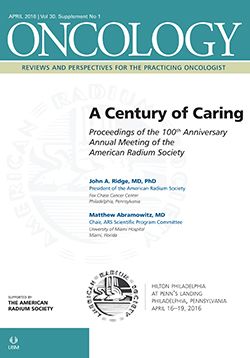(S045) Specialty Biases Influence Recommended Treatment Strategies for Patients With High-Risk Prostate Cancer: A Patterns-of-Care Study
Specialty-specific differences were identified for both upfront management and management after biochemical recurrences for high-risk prostate cancer, with specialists more likely to recommend the treatments they could deliver for nearly all clinical scenarios, whether these recommendations were based on high-level evidence or not.
Amar U. Kishan, MD, Gillian Duchesne, MD, Pin-Chieh Wang, PhD, Jean-Claude Rwigema, MD, Matthew Rettig, MD, Christopher Saigal, MD, Michael L. Steinberg, MD, Christopher R. King, MD, PhD; UCLA; University of Melbourne
BACKGROUND: The optimal management of high-risk prostate cancer (CaP) remains controversial. We hypothesized that specialty-specific differences would manifest in treatment recommendations between radiation oncologists and urologists, regardless of the level of evidence supporting various strategies.
METHODS: An online survey was offered to radiation oncologists and urologists, querying opinions about treating high-risk CaP in the upfront setting, postoperatively, or after biochemical recurrences (BCRs) following radiation therapy (RT). Multivariate logistic regression was used to analyze how specialty influenced responses, adjusted for practice setting, training level, percentage of consultation caseload consisting of CaP, and nationality.
RESULTS: A total of 1,253 physicians (846 radiation oncologists and 407 urologists) completed the survey. Radiation oncologists were more likely to prefer adjuvant RT, feel that it is underutilized, and recommend salvage RT at lower PSA thresholds (P < .0001). Urologists were more likely to recommend salvage radical prostatectomy (RP) or cryoablation for local salvage after RT, while radiation oncologists were more likely to recommend RT-based modalities and feel that local salvage was underutilized after RT (P < .0001). Urologists were more likely to feel that upfront RP was a better definitive treatment (P < .0001), while radiation oncologists were more likely to have the opposite opinion (P = .005).
CONCLUSIONS: Specialty-specific differences were identified for both upfront management and management after BCRs for high-risk CaP, with specialists more likely to recommend the treatments they could deliver for nearly all clinical scenarios, whether these recommendations were based on high-level evidence or not. These differences highlight the need for multidisciplinary clinics and improved cross-specialty education.
Proceedings of the 98th Annual Meeting of the American Radium Society -americanradiumsociety.org
